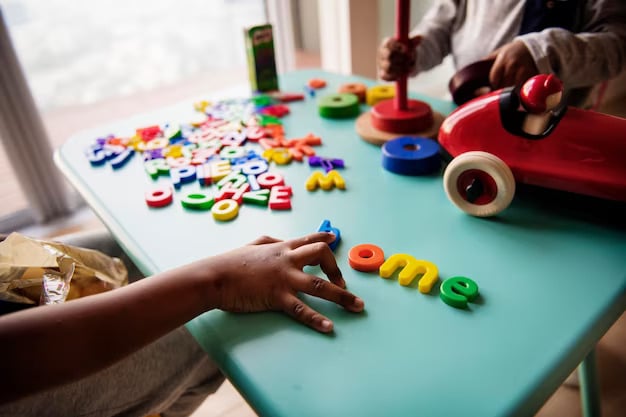The Power of Play: How Play-Based Learning Shapes Development

The Power of Play: How Play-Based Learning Shapes Development
In an era where academic achievement often takes precedence, the importance of #play in #early-childhood-education is frequently underestimated. Yet, play is not just a source of entertainment; it is a fundamental aspect of children's #development that lays the groundwork for lifelong learning. Through play, children explore their environment, develop critical thinking skills, and foster social connections. This article delves into the transformative power of play-based learning, highlighting its essential role in nurturing creativity, problem-solving abilities, and emotional intelligence. By understanding the myriad benefits of play, #educators and caregivers can create supportive learning environments that not only enhance children's educational experiences but also cultivate a genuine love for learning. As we explore the various dimensions of play-based learning, we will uncover its significance, types, and effective strategies for implementation in #early-childhood education settings.
Play-Based Learning
Play-based learning, an educational approach that integrates play into the learning process, allowing children to explore and learn through guided play. This method has been shown to enhance essential skills such as #math and spatial awareness. Play-based learning emphasizes the significance of play as a primary method for children to develop cognitive, social, emotional, and physical skills. It encompasses various types of play, including #free and guided play, and highlights its importance in early childhood education.
Benefits of Play-Based Learning
Play-based learning offers numerous advantages that contribute to a child's overall development:
-
Cognitive Development: Engaging in play helps children develop critical thinking and problem-solving skills. Through exploration and experimentation, they learn to navigate challenges and understand cause-and-effect relationships.
-
Social Skills: Play provides a platform for children to interact with peers, fostering collaboration, negotiation, and conflict resolution. These interactions are crucial for developing #empathy and communication skills.
-
Emotional Growth: Play allows children to #express their feelings and understand the emotions of others. This emotional intelligence is vital for building #healthy relationships throughout life.
-
Physical Development: Many play activities promote physical health by enhancing fine and #gross-motor skills. Activities like climbing, jumping, and manipulating objects contribute to overall physical fitness.
Types of Play in Play-Based Learning
Play-based learning can be categorized into two main types: free play and guided play.
-
Free Play: This type of play is child-directed and voluntary, allowing children to explore their interests without specific goals. It often involves imaginative scenarios where children can role-play and enact various situations.
-
Guided Play: In this approach, #teachers provide structure and support while allowing children to #lead their learning. This can include:
- Inquiry Play: Children initiate #play-based on their interests, while teachers ask probing questions to deepen understanding.
- Collaboratively Designed Play: Teachers and #students work together to create play scenarios, ensuring that learning objectives are met while maintaining child autonomy.
- Playful Learning: This involves embedding specific academic skills within #playful contexts, such as using games to teach #math-concepts.
Implementing Play-Based Learning
To effectively incorporate play-based learning in educational settings, educators can consider the following strategies:
-
Create a Play-Friendly Environment: Classrooms should be equipped with diverse materials that encourage open-ended play, such as blocks, art supplies, and #sensory bins.
-
Follow the Child's Lead: Teachers should observe and engage with children’s interests, allowing them to guide their play experiences.
-
Provide Unstructured Playtime: While structured activities are important, ample unstructured playtime is essential for fostering creativity and exploration.
-
Encourage Outdoor Play: Outdoor environments offer unique opportunities for sensory experiences and physical activity, which are vital for holistic development.
-
Limit Screen Time: Reducing screen time can enhance opportunities for active, imaginative play, promoting healthier #developmental outcomes.
By recognizing and implementing the principles of play-based learning, educators can create enriching environments that foster curiosity, creativity, and a lifelong love of learning in children.
#free-play
#gross-motor-skills
- Lesson Planning for Infants and Toddlers
- The Essential Guide to Preschool Curriculum
- Celebrate Earth Day with Gross Motor Play and Outdoor Learning!
- The Power of Play: Unleashing Potential in Early Childhood Education
- Spatial Awareness: How to Stop Your Kids from Walking into Walls
- The Power of Play: How Play-Based Learning Shapes Development
- How your child's sensory toys serve as portals to different imaginative worlds
- Playful Learning: How Games Help Preschoolers Grow
- Why Finger Paint and Sand Tables Are Just as Important as Phonics: The Science Behind Messy Play
- The Gross (Motor) Truth: 10 Gross Motor Games for Active Classroom Fun
- Goodbye Glitter Glue, Hello Growth: Child Development Milestones to Watch for in the New Year
- Big Snowflakes, Bigger Milestones: Supporting Child Development Through Seasonal Activities
- St. Patrick’s Day Activities for Kids: Fun, Educational, and Easy Ideas for Parents & Teachers
- How Cultural Influences Shape Child Development
- A Path to Engaged Learning: Play!
- DAP Delight: Making Learning Joyful & Just Right for Every Child
- How Can Teachers Support Every Part of a Child’s Development? 🧠❤️
- 🧠 What Shapes a Child’s Strength, Confidence, and Emotional Growth?